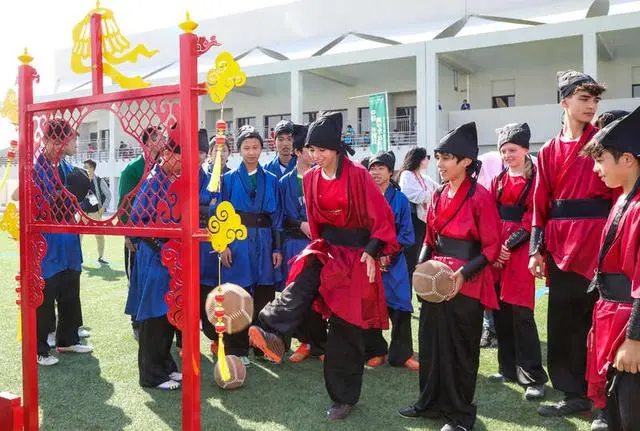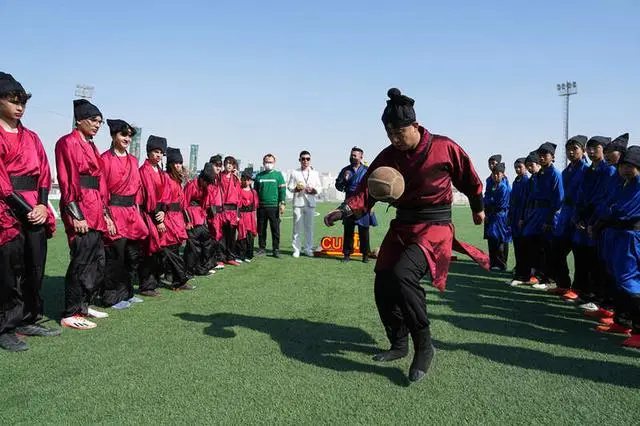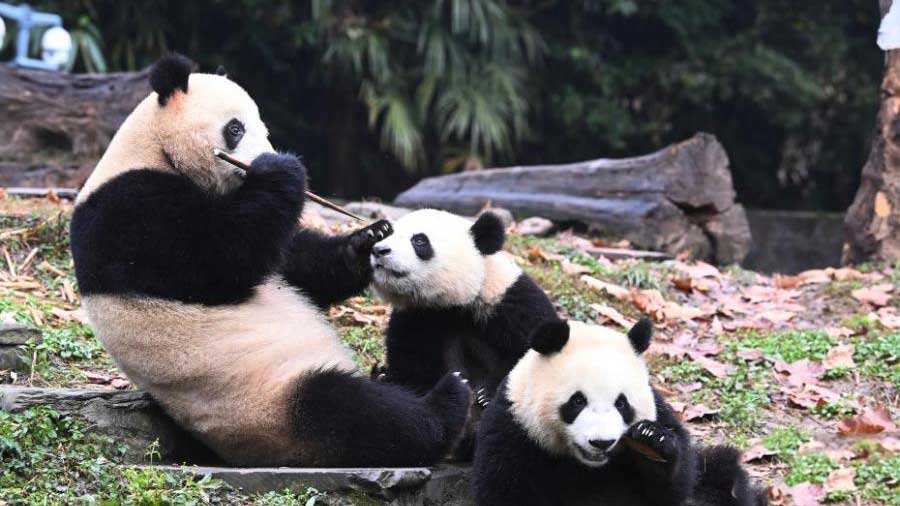Chinese Cuju culture shines in Qatar
During the FIFA World Cup Qatar 2022, Cuju, the ancient Chinese prototype of modern football, was introduced to the whole world.
Li Weipeng, a seventh-generation inheritor of Cuju culture from Zibo, east China’s Shandong Province, was one of the performers who demonstrated the tricks and skills of the ancient sport during the World Cup in Qatar.

Young Qatari players play Cuju during the activity. (Photo/China Youth Daily)
The performers also invited young Qatari players to play Cuju with their Chinese counterparts. All of them wore traditional clothing to experience the similarities and differences between Cuju and modern football.
"When I performed Cuju abroad, I always won big applause and cheers from football fans. I did not understand their language, but I could feel their strong interest in our traditional Chinese culture through their excited faces," said Li, who has been playing Cuju for 18 years and has showcased his skills overseas many times in recent years.
Cuju can be traced back to the Spring and Autumn Period (770-476 BC) and Warring States Period (475-221BC). It spread to East Asia and Europe during the Tang Dynasty (618-907) and later developed into modern football in the UK.

Li Weipeng, a seventh-generation inheritor of Cuju culture, shows skills of Cuju during the activity. (Photo/China Youth Daily)
As a national intangible cultural heritage item in China, the sport has been recognized by FIFA as the prototype of modern football, with the city of Zibo in east China’s Shandong Province named as its official birthplace in 2004.
The Cuju culture demonstration activity in Qatar was jointly held by the Network of International Culturalink Entities and the Shandong Provincial Department of Culture and Tourism. During a football fan carnival held in Qatar, an exhibition booth was set up to introduce various aspects of China’s Cuju culture to spectators.
Zhou Jian, Chinese ambassador to Qatar, said that the Cuju culture demonstration activity can serve as an opportunity for Qatari citizens to learn about Chinese culture and promote cultural exchange and mutual learning between the two countries.
As China has strengthened cultural exchanges with foreign countries, an increasing number of foreigners have begun learning about China’s intangible cultural heritages. On short-video platforms, intangible cultural heritage items that are highly interactive and involve widespread participation can garner attention more easily.
Besides Chinese martial arts, acupuncture, the mortise and tenon technique, Peking opera and Erhu are also popular overseas.
Photos
Related Stories
- Head coach of Qiongzhong women’s football team thanks Messi, Iniesta for donating autographed jerseys
- Juggling a football up Tianmen Mountain
- Girls' football team in mountainous area in China's Guangxi dream big
- Former head coach of China football team under probe
- A football dream pursued at 4,500m above sea level
- Japan stun Germany, Spain break record in World Cup
- Three Chinese boys make headlines after appearing at Qatar 2022 World Cup as FIFA flag bearers
- International friendly match: Belgium vs. Egypt
- Bayern opens new football school in east China
- Team Australia wins Cathay Pacific/HSBC Hong Kong Sevens final
Copyright © 2022 People's Daily Online. All Rights Reserved.









